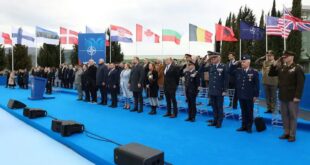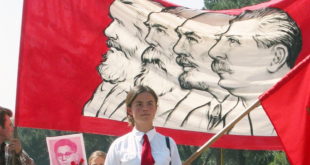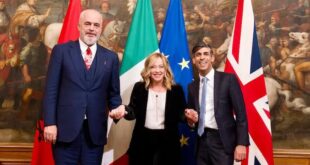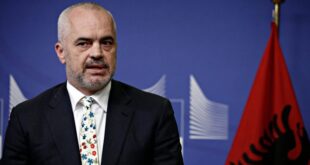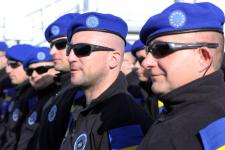 The global financial crisis could lead to staff cuts in international missions operating in Kosovo and may mean more power devolving to local authorities.
The global financial crisis could lead to staff cuts in international missions operating in Kosovo and may mean more power devolving to local authorities.
Kosovo’s authorities will exercise more power as international missions shrink in size under the impact of the global economical downturn, experts say.
The latest example comes from Britain. The number of British employees in the International Civilian Office, ICO, a body supervising Kosovo’s independence, is to be cut by 50 per cent.
It will make similar percentage cuts to the number of staff working at the European Union law and order mission, EULEX.
The British Embassy in Pristina said the staffing cuts reflected a reduction in the funds available.
Britain is currently engaged in peacekeeping missions in Sudan and the Democratic Republic of Congo, and London sees these missions as more vital than Kosovo, where security has improved.
“Britain will continue to finance a considerable number of its prominent staff in EULEX and the ICO. These are largely serving in rule-of-law, stability and political counseling,” the Embassy said.
The cut in the number of international staff means more responsibilities will be handed over to local authorities, making Kosovo’s sovereignty more real in practice.
Britain, Germany, Spain and Lithuania meanwhile served notice that they will be reducing troop levels serving in the NATO peacekeeping mission, KFOR, in February.
“The security situation in Kosovo has improved [and] with the economic crisis, our budget has been reduced,” a Lithuanian Defence Ministry spokesman, Danguole Bickauskiene said, explaining the withdrawal of 30 Lithuanian soldiers from Kosovo.
Lithuania’s move came a week after Spain announced all its troops will be withdrawn from Kosovo.
The announcement, which has caused alarm in several quarters, was made in the course of a sudden visit by Spanish Defence Minister Carmen Chacon.
She said Spain’s 600 soldiers had done their job. “The mission is accomplished and it’s time to go home,” said Chacon.
A EULEX spokesman, Kristof Lamfalysi, insisted the cuts would not affect the mission’s work. “We are a big mission and will take all the measures to fill the gaps,” Lamfalysi said.
Safet Gerxhaliu, from Kosovo’s Chamber of Commerce, told BIRN’s fortnightly newspaper in Kosovo, Prishtina Insight that the cuts represented “a case where political and economic interests are quite intermingled.”
“At a time of global financial crisis, states want to mind their own interests,” Gerxhaliu noted.
Albin Kurti, from the Vetevendosje (Self-determination) movement, said the global financial crisis had created “an extraordinary situation in the international arena, which has restored the importance of the nation state per se”.
“In this difficult situation, individual states are pursuing their own interests,” he added.
“This is a sign that the importance of international mechanisms is decaying and sovereign states are again gaining importance,” he maintained.
After the end of the 1998-1999 Kosovo war, NATO’s mission, KFOR, comprised 50,000 soldiers from 34 countries. That has fallen to 15,000, a number that is now to be reduced.
The EU rule of law mission has 1,710 international staff in Kosovo, working from a budget of €205 million.
Italy is the largest contributor with 201 employers, followed by France, with 194, Romania with 189 and Germany with 135.
 Eurasia Press & News
Eurasia Press & News
